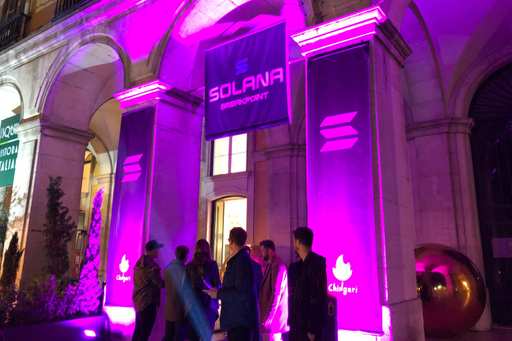
Solana Could be the Next Paypal
Solana, a promising blockchain network, is poised to disrupt the payments industry. Leveraging blockchain technology, Solana Pay introduces near-zero transaction fees and fosters deeper merchant-customer connections, potentially revolutionizing digital payments.
- Published:
- Edited:
Digital payments have undeniably transformed the way we transact today. One giant of this revolution is PayPal, with its impressive 435 million active accounts and over $82 billion market capitalization. However, a promising blockchain network, Solana, is eyeing to disrupt this fintech stronghold and has a compelling proposition to back it up.
PayPal's dominance in the payment sector is profound. With $1.36 trillion in total payment volume and $27.5 billion in revenue in 2022, its widespread adoption among retailers in North America and Europe solidifies its lead. Central to PayPal's business model is the transaction fee, which accounted for 92% of its 2022 revenue.
For businesses, particularly SMEs operating on tight margins, these transaction fees can be a significant drain on their profits. This is where Solana could change the game. By capitalizing on blockchain technology, Solana's payment service, Solana Pay, allows direct transactions between merchants and consumers, significantly slashing the expenses associated with middlemen.
Unlike PayPal's transaction-based model, Solana Pay, powered by its native SOL token, introduces near-zero fees, a potentially game-changing proposition for merchants. But Solana Pay is not just about cost-cutting; it also fosters stronger connections between merchants and customers. Non-fungible tokens (NFTs), for instance, can serve as digital receipts for purchases, offering customers added benefits and creating a unique communication channel between the business and its consumers.
An essential factor to consider is Solana's transaction capacity. Its network boasts a theoretical throughput of 50,000 transactions per second (TPS), starkly contrasting with Ethereum's 12 TPS and Bitcoin's 4 TPS. This capacity is comparable to Visa's 65,000 TPS, indicating Solana's viability as a large-scale payment solution.
Certainly, the lure of a decentralized payments model is compelling. It offers a potential avenue for blockchain technology to prove its worth beyond speculative assets, particularly in an industry riddled with intermediaries. PayPal's impressive free cash flow margin of 18.5% last year is a testament to the profitability of the payments industry, a potential that Solana seems ready to tap into.
However, some challenges lie ahead for Solana. Technical risks, including network outages, and security risks remain key concerns. Usability for merchants and consumers is paramount. The advantages of switching to a blockchain-based payments system need to be compelling enough to warrant the replacement of tried and tested transaction methods.
While widespread merchant acceptance for Solana is unlikely in the immediate future, the potential for disruption is evident. As we move towards a more decentralized financial world, Solana's ambition to become the next PayPal represents a bold and exciting prospect for the future of payments.


